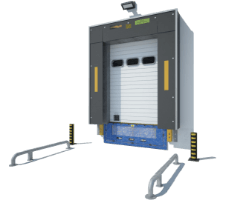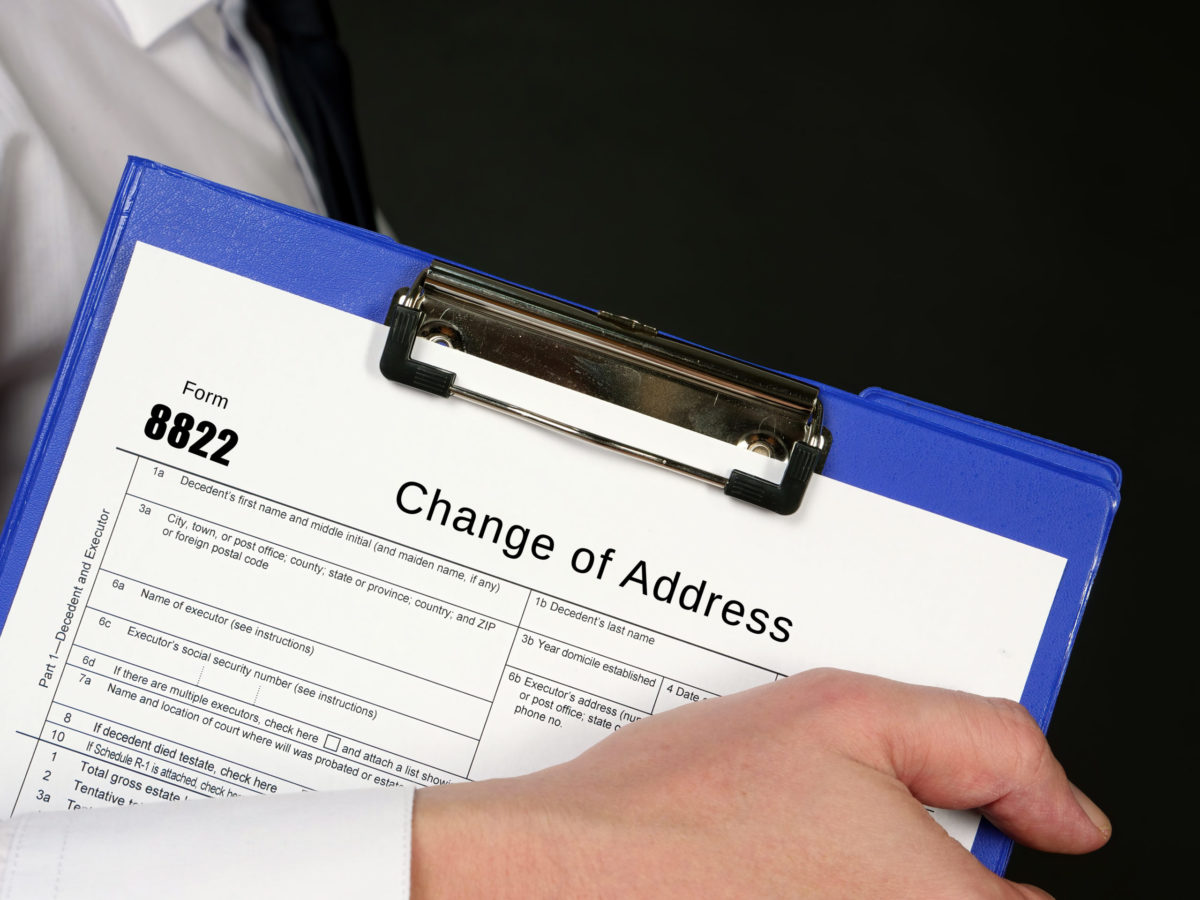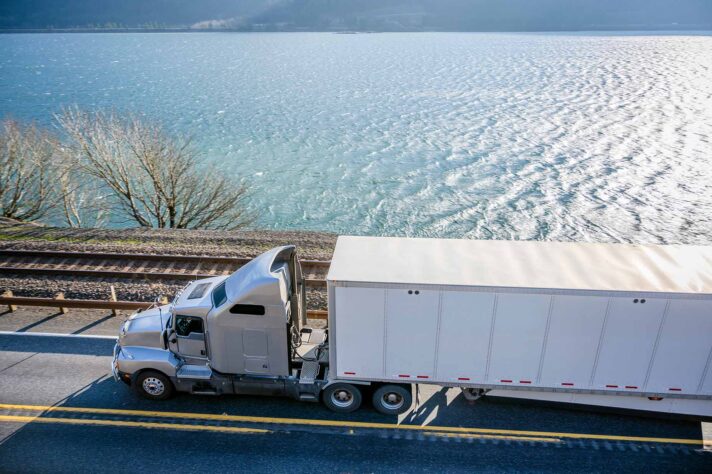That’s why we’ve put together this essential guide to help you plan your move with ease and confidence. From researching cross-country moving companies to finding the cheapest way to move, we’ll cover all the basics, ensuring you have everything in order before the big day.
A Comprehensive Guide to Things to Do Before Moving
We know that preparing for a move can be stressful, whether it’s just down the street or across the country. With so many aspects to consider, it’s easy to feel overwhelmed. Let’s dive in and explore the top things to do before moving to make your transition smooth and hassle-free.


The Importance of Planning and Organization of Things to Do Before Moving
Planning and organization are the keys to a successful and stress-free move. Whether for personal reasons, employee relocation, or a fresh start, you should take time to organize everything.
Besides, relocation can be emotionally taxing, and adjusting to a new environment can sometimes lead to depression after relocating. By planning thoroughly, you’ll be equipped to handle all changes and challenges. This includes researching your new location, creating a support network, and establishing a routine as soon as possible.
Additionally, packing tips and tricks are integral to a successful relocation. By organizing and packing your belongings systematically and efficiently, you’ll save time and reduce the risk of damage. This means decluttering before packaging, using high-quality materials, and labeling.
If you’re relocating for work-related reasons, you must plan around your new job’s requirements. This might involve coordinating with your employer, understanding relocation benefits or packages, and ensuring you’re prepared to start your new role in a new location.
Finally, planning and organizing include researching and comparing long-distance movers, understanding the costs, and ensuring your belongings are packed and transported safely. By taking the time for each step, you’ll handle any challenges that may arise.
How to Plan the Things to Do Before You Move
Planning is crucial for a successful move, as it helps you stay organized, on track, and prepared for any challenge. For example, you must think of hiring movers, how to move furniture and heavy items, and maneuvering the psychological effects of relocation.
Finding reputable cross-country moving services is a great way to plan a relocation. Start by obtaining quotes from multiple companies, checking reviews, and comparing services and prices. Ensure that the company you choose is experienced in long-distance moves and offers the required services.
Relocating often has a significant impact on one’s mental well-being. Take time to learn about the potential psychological effects of frequent relocation and develop strategies to cope with the challenges that may arise. This could involve building a support network in your new location, maintaining routines, or seeking professional help.
Plan how to ship large and bulky furniture items in advance. Measure doorways, hallways, and staircases to ensure they will fit through and disassemble items that require it. Consider hiring professional movers if you’re uncomfortable lifting heavy items, and ensure you have the necessary tools and equipment to protect your furniture during shipping.
Take Inventory of Your Belongings
Before anything, it’s important to create a home inventory of all your belongings. This will help keep track of your items during relocation and make unpacking and settling into your new home easier.
As you create the inventory, consider categorizing items by room or function, and include details such as quantity, condition, and estimated value. This list will also help create your relocation to-do list.
Identify Items to Sell, Donate, or Discard
As you take inventory of your belongings, you’ll likely come across items you no longer need or want. Instead of bringing them along, consider organizing a garage sale to sell stuff or donate unwanted items to local charities. This will help you declutter and present the opportunity to give back to your community.


Choosing a Method for Moving Cross Country
Selecting the appropriate relocation method is essential for it to be successful. There are several factors to consider, like cost, convenience, and the amount of help you’ll need. To choose the best method, gather cross-country moving service recommendations from friends, family, and colleagues.
Additionally, search online for reviews and ratings of various companies. Gathering multiple recommendations will give you a better idea of the quality and reliability of different relocation services.
Efficient packing is crucial for any cross-country move, regardless of the method you choose. To pack quickly, start by decluttering and organizing your belongings. Create a packing schedule, and tackle one room at a time. Use high-quality packing materials, and be sure to label boxes clearly with their contents and the room they belong in.
Estimate Time for Packing and Logistics With Your Cross-Country Movers
Besides hiring movers, you should estimate the time needed for packing and logistics. This will help you coordinate and prepare for movers of your choice and ensure a smooth and efficient process.
Before movers arrive, make sure you’ve completed all necessary packing and preparation. This includes disassembling furniture, disconnecting appliances, and clearing pathways for them to navigate your home. A detailed home inventory and clear instructions will help movers work more efficiently and reduce the risk of delays or misunderstandings.
Unfortunately, relocation scams are all too common in the moving industry. To avoid falling victim to one, research your chosen company and verify its credentials. Be cautious of those demanding large upfront deposits, offering prices that seem too good to be true, or refusing to provide written estimates. Protect yourself by choosing a reputable licensed mover.
Moving
Our mission is to bring high quality, long distance moving services to every customer.
Packing
Our expert moving teams are trained to ensure the safety of your personal belongings.

Storage
Cross Country Moving Company is the most trusted name in auto industry in the country.
Don’t Forget to Get or Schedule Time off Work
Taking time off work is crucial during relocation, as it allows you to dedicate the necessary attention to the relocation logistics. Having time to handle these tasks will make relocation manageable and help you maintain a healthy work-life balance without feeling overwhelmed.
Before requesting time off, you should know your company’s policies regarding vacations, personal days, and any potential relocation assistance they may offer. Communicate plans with your manager or human resources department to avoid conflict or misunderstandings.
If you’re relocating for work, address any concerns with your employer. Some key relocation questions to ask your employer might include the following.
- What relocation assistance or packages are available?
- How much time off will be provided for the move?
- Are there any specific requirements or expectations regarding your transition to the new location?
- Will the company cover any expenses, such as long-distance moving services or temporary housing?
By addressing these questions early on, you’ll have a better understanding of what support and resources are available to you while planning to relocate. This knowledge will help you plan your relocation more effectively and ensure a seamless transition to your new location.
And if you find yourself having to move out without secured employment waiting on the other side, check out the video below. In it, a man explains how he made sure to live a fulfilled life with a part-time job – which we’re pretty sure you can find in your new city.
Things to Do Before Relocation – The Essential Moving Tasks
Relocating to a new home can be overwhelming, but with the right preparation, you can make it less stressful than usual. The essential tasks to complete before relocation include decluttering, organizing, gathering packing materials, labeling boxes, and handling utilities and services. Here’s more on each task type.
Declutter and Organize
Before you begin packaging, declutter your home and organize all belongings. This will make things efficient and save you time and money on packing services or supplies.
As you declutter, consider donating, selling, or disposing of items you no longer need. Remember that there may be items movers won’t move, such as hazardous materials or perishable goods, and make arrangements to transport these items separately.
Additionally, you must have easy access to essential documents at all times, from birth certificates and passports to financial records.
Organize important papers in a secure and easily accessible location, and consider creating digital copies as a backup. Having these documents organized will help ensure a smoother transition and prevent any delays or complications during shipping.
Gather Packing Materials
Once you’ve decluttered and organized everything, it’s time to gather packaging materials. This may include boxes, packing paper, bubble wrap, tape, and markers for labeling. Collect a variety of box sizes to accommodate different items, and be sure to have enough to protect your belongings during shipping.
Label Boxes and Create an Inventory List
As you pack, it’s crucial to label each box with its contents and the room it belongs in. This will make the unpacking process more manageable and help you keep track of your belongings. Additionally, creating an inventory list of your packed items can be helpful for reference during unpacking or in case of lost or damaged items.
Handling Utilities and Services
Before relocation day, list all the utilities and services you’ll need to disconnect at your old home and set up at your new residence. This may include electricity, gas, water, internet, and cable.
Contact each provider to schedule disconnection and reconnection dates and ensure a seamless transition between homes. Don’t forget to update your address with the post office, banks, and other essential institutions.


For a Smooth Transition, Call Cross Country Moving Company
In conclusion, proper planning and organization are key to a successful relocation. By following the guidelines provided in this blog, you’ll be prepared for all relocation challenges.
However, to ensure a smooth transition, consider enlisting the help of a professional long-distance moving company. Cross Country Moving Company has the expertise and experience to organize your relocation efficiently and with minimal stress. Don’t leave your move to chance. Reach out to us today and let our team of experts help you every step of the way.
FAQ
What Is the Best Way to Create a Moving Timeline?
The best way to create a moving timeline is to start by listing all the tasks you need to complete before, during, and after relocation. Break down each task into smaller steps and prioritize them based on urgency. Assign them deadlines, starting with the relocation date and working backward. Be sure to leave some buffer time for unexpected delays or challenges.
How Can I Decide Which Items to Keep, Donate, or Discard Before Moving?
Start by sorting through your belongings and categorizing them into three groups: keep, donate, and discard. Consider the practicality, sentimental value, and condition of each item when making decisions. If an item hasn’t been used in over a year or doesn’t hold significant sentimental value, it might be time to donate or discard it.
What Are the Best Practices for Packing Fragile Items?
For effective packaging, use high-quality packing materials, such as bubble wrap, packing paper, and sturdy boxes. Wrap fragile items individually and use padding to fill empty spaces within the box. Label boxes containing fragile items clearly, and indicate which side should be kept upright.
How Far in Advance Should I Start Packing for Relocation?
Ideally, you should start packaging at least four to six weeks in advance. Begin with rarely used items and work your way toward frequently used belongings. This will give you ample time to declutter, organize, and pack without feeling overwhelmed.
What Is the Most Efficient Way to Label and Organize My Boxes?
The most efficient packaging method is to label each box with its contents and the room it belongs in. Consider using a color-coding system to easily identify boxes for each room. Additionally, create an inventory list to track your belongings during shipping.
How Can I Ensure I've Notified All Necessary Parties About My Address Change?
To keep track of everything, list all organizations and individuals to inform about your address change, such as banks, insurance providers, utilities, and friends and family. Notify each party in advance, either in writing or through online address change forms.
How Do I Create a Moving Budget and Keep Track of Expenses?
Keep track of all expenses, including packing supplies, mover fees, and travel costs. Compare quotes from multiple relocation companies to find the best deal, keep a detailed record of all expenses, and update your budget as necessary.
Are There Any Special Considerations for Relocating With Pets or Children?
Plan for the needs of your pets or children throughout the relocation period. Secure necessary travel arrangements, such as pet carriers or car seats. Consider scheduling playdates or pet sitters on relocation day to minimize stress.
What Documents Should I Keep With Me During the Relocation Process?
Keep important documents, like identification, passports, birth certificates, and financial and medical records, with you during relocation. Organize these papers in a secure and easily accessible location.
How Can I Make My New Home Feel Like "Home" as Quickly as Possible?
Unpack essential items first and set up bedrooms and bathrooms for immediate use. Personalize your living space with familiar decorations, photos, and cherished belongings. Establish routines and explore your new neighborhood to help build a sense of familiarity and belonging.




